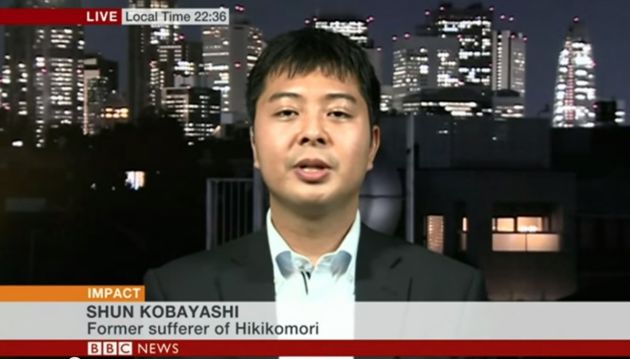Hikikomori: strange condition turns 'young and capable' men into recluse, totally withdrawing from society

Hikikomori is a word that not many have heard of; but thanks to the popular French documentary "Hikikomori, A Deafening Silence," the word, and the condition, is becoming known.
It is a condition that is affecting about a million Japanese men. People who suffer from hikikomori essentially withdraw from their families, their friends and society in general and live lives as a shut in. The condition affects men as young as 15 and some who suffer from this condition have not left their bedrooms in years, preferring to sleep the day away then stay up all night surfing the internet or reading manga. One confirmed hikikomori has been a recluse for thirty years now.
Sadly, the condition usually affects "intelligent and capable" young men from middle class families, an alarming economic scenario, especially in light of the floundering Japanese society.
Dr. Takahiro Kato, one of the few experts on the subject, became a hikikomori when he was a student and is now speaking out about the disease and working to help people overcome it. Dr. Kato says he is worried because about one percent of Japan's population is suffering from this or a similar condition.
The doctor pointed out that it is very rare for this condition to be found in poor families but it is prevalent in middle class families. As a matter of fact, "some hikikomori have graduated from very good famous universities so it's a very sad story for them."
There are a number of reasons that prompts a man to become a hikikomori. Some say failure in school or in their endeavors turned them into a recluse. The way Japanese society is structured also plays a big part, with the dependence on the mother and the strong feeling of shame being pointed as two of the culprits.
Dr. Kato explains that "Japanese parents are overprotective to their children" so it becomes very hard for people to become independent. He then adds that "it's one reason why Japan have many more hikikomori compared to western society."
However, certain sectors in the UK are worried that this epidemic might also happen in their society as more pressure is being placed on young British men.
The condition is slowly being addressed in Japan. Dr. Kato is leading a team at Kyushu University that's tasked to understand the condition. Recovering from hikikomori is possible but according to Dr. Kato, it would entail a change in family interaction, as the first steps to recovery are rebuilding communication and trust.